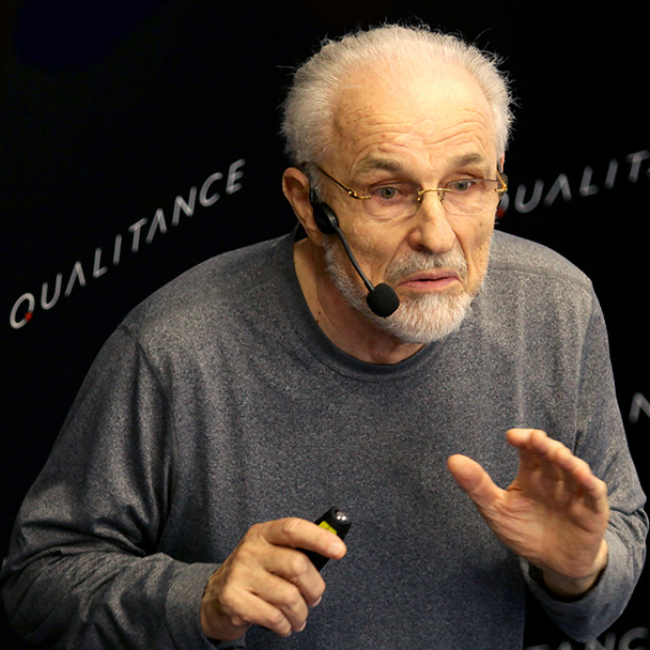Complex matters generate a lot of hype, and Artificial Intelligence makes no exception. We all heard Zuckerberg and Musk clashing on this subject a number of times already. Zuckerberg strongly believes in AI, investing all his money in the thought that technology will save us from ourselves; Musk is convinced that AI will eventually turn the tables on humanity. Hence, his focus on interplanetary colonization as a solution for our survival when AI takes over.
This is just one of the many examples where strong leaders make powerful statements, that stir debates and somewhat encourage people to take sides somewhat blindly, without necessarily understanding the matter in its entire complexity. When the public opinion chooses one side or another, it’s one thing. But when scientists and computer scientists choose to sit in their corner, ignoring the contribution of other fields like philosophy or linguistics, we’re dealing with the dangers of a single story.
On a side note, we’re living in a world run by more and more software, swimming in an ever-growing sea of data. To make sense of it, we need more than solid, bulletproof algorithms. We need to be open to a dialectical approach that brings computer scientists and philosophers (or any other specialists) to the same table. It’s the only way we can hear all the sides of the story.
This is why on June 7th, starting 7 pm EET, Professor Dan Cautis from Georgetown University will take the floor at QUALITANCE headquarters for a thought-provoking talk entitled Philosophical Considerations in Artificial Intelligence. In the light of the latest joint theory of computer scientists and philosophers, Professor Dan Cautis will illustrate how Artificial Intelligence understands reality and how ignoring the philosophical analysis can lead to erroneous results.
This isn’t the first time Professor Dan Cautis is sharing invaluable insights with the QUALITANCE community. Last year, he told us how Artificial Intelligence and Machine Learning would affect our lives, and the year before he talked us through Transhumanism. This week however, he will prove yet again how important philosophy is to science in general and to machine learning in particular, and how a joint team of researchers (computer science and philosophers) were able to bring new and important discoveries in the epistemology of causation that would have been impossible, had they worked independently.
The talk will be live streamed on Facebook. If you have not joined our Facebook event just yet, you can still do it here.
Save the date: June 7th, 7 pm EET
Live: QUALITANCE Headquarters
Facebook Live: Philosophical Considerations in AI
Key takeaways from the talk
- How structural causal discovery works in large systems of information and events;
- New grounds in controversial topics such as correlation vs. causation as well as in how AI understands reality and handles uncertainty;
- Practical implications in robotics, medical diagnostics expert systems, drug discovery, social sciences studies, manufacturing quality improvements.
If you’re looking for even more hints at the upcoming talk, here’s a short interview with Professor Dan Cautis revealing his main concerns, including his advice to computer scientists on how they should handle the AI hype – treat it with caution, get to the bottom of it, take into account and scrutinize all the layers of philosophical considerations.
Philosophical Implications in Artificial Intelligence is part of our FUTURE HORIZONS series of events advocating emerging technologies that fuel innovation: Artificial Intelligence, IoT, Blockchain, Augmented Reality, Autonomous Vehicles, Facial Recognition.
More on Professor Dan Cautis
Dan Cautis is an adjunct professor at Georgetown University where he teaches the following courses:
- Church and Science – A Historical Perspective, where he focuses on the complex philosophical and political interaction between the scientific developments and the Catholic Church dogma from the High Middle Ages to this day;
- Transhumanism – Ethical, Social and Religious Implications, where he discusses the scientific and philosophical context of state-of-the-art developments such as Technological Singularity, Artificial Super Intelligence, Nanotechnologies.
Between 2006 and 2015, professor Dan Cautis was Associate Vice President at Georgetown University. As visiting professor and invited corporate speaker, Mr. Cautis also teaches courses in Artificial Intelligence and Machine Learning using Python implementation of algorithms. Deep learning and reinforcement learning, artificial neural networks, data pattern recognition and classification, linear regression are only some of his main concerns.
For many years, Mr. Cautis has taught Curriculum University and Postgraduate Courses in electrical engineering (at the Polytechnic University in Bucharest, Romania, University of California at Berkeley Extension) and non-curriculum liberal studies courses on the history of sciences and the relationship between religion and science.
Mr. Cautis also has a long and distinguished experience in managing hardware and software complex products design and manufacturing. Before Georgetown, he has been a senior executive for Maxtor, Seagate, Maxoptix, Western Digital, Lawrence Livermore National Lab (LLNL), leading large engineering teams and developing successful strategic partnerships in China, Japan, Thailand.
He is the author of three patents, and has published many papers in the field of electrical engineering/control systems. Between 1970-1980, he was professor of control systems at the Polytechnic University in Bucharest, where he received his Master of Science degree in electrical engineering.



To < b > or not to < /b >: Philosophical Considerations in AI with Professor Dan Cautis | QUALITANCE
Posted at 12:50h, 14 June[…] week’s FUTURE HORIZONS event was about Philosophical Considerations in Artificial Intelligence, and professor Dan Cautis rocked the audience with eye-opening insights – it’s one of his […]